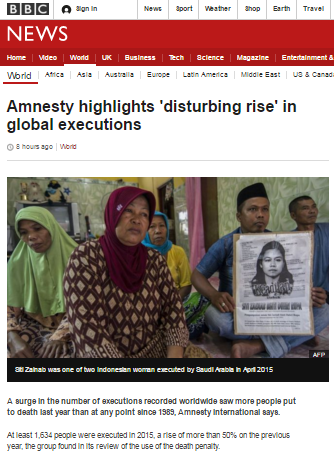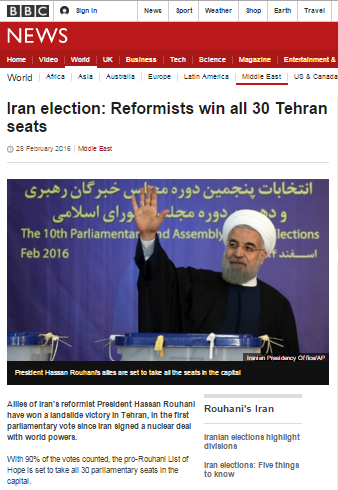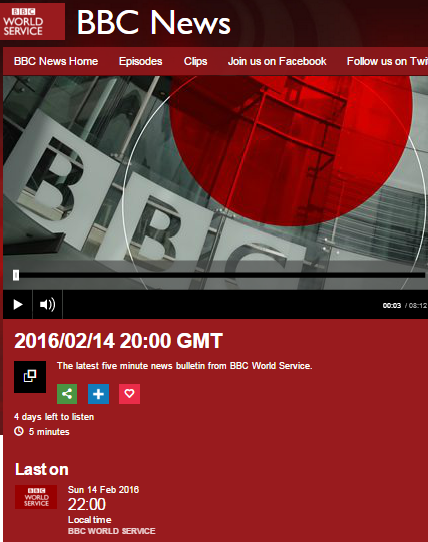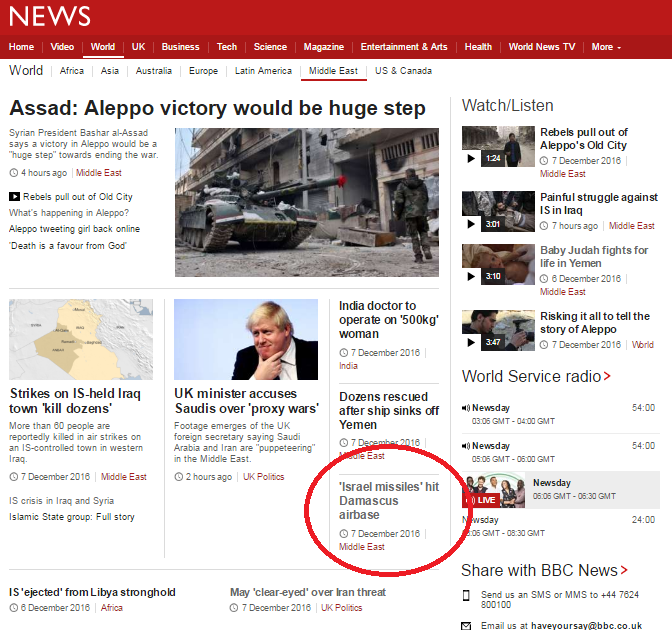Just over a year ago we posed the following question on these pages: “Why does the BBC continue to describe Rouhani as a ‘moderate’?“. That question was prompted by the fact that at the time – nearly two years after Rouhani’s election – the United Nations Special Rapporteur on the situation of human rights in the Islamic Republic of Iran had just published a report which found that the number of executions in Iran has risen under Rouhani’s presidency.
On April 6th 2016 the BBC News website published an article titled “Amnesty highlights ‘disturbing rise’ in global executions” which has the following fifty-eight words to say about the country which, according to the quoted report, had the second highest rate of executions in the world in 2015.
“Iran executed at least 977 people in 2015 – the vast majority for drug-related crimes – compared with 743 the year before, according to Amnesty.
Those put to death, the group found, included at least four people who were under 18 at the time of the crime for which they had been convicted. This, it said, violated international law.”
Although no mention of it is made in this BBC report, additional organisations have raised questions regarding Iran’s dubious use of charges concerning drug-related crime and the lack of due process for those detained on such charges. According to the organisation ‘Iran Human Rights’:
“…Iranian authorities have carried out more executions in 2015 than any other year in the past 25 years.”
A recent report from the same NGO notes that:
“Since the election of Hassan Rouhani in June 2013, at least 2162 people have been executed. A comparison between the 2.5 years after Hassan Rouhani’s election and the 2.5 years before his election show an increase of 43% in the number of executions.
Although it is the judiciary which issues and implements death sentences, neither President Rouhani nor members of his cabinet expressed any dissatisfaction about the large number of executions. On the contrary, on the few occasions when President Rouhani or Foreign minister Zarif made statements about the death penalty they have defended Iran’s high number of executions.”
Nevertheless, as recently as late February the BBC was still telling its audiences that Rouhani is “Iran’s reformist President” and describing him as heading a “reformist camp”. A BBC profile of Rouhani last updated in February 2016 tells audiences that ‘Mr Rouhani says he wants to steer Iran towards “moderation”‘ and another profile dated August 2015 states that:
“Although he was seen as part of the establishment, Mr Rouhani’s promises to relieve sanctions, improve civil rights and restore “the dignity of the nation” drew large crowds on the campaign trail.” [emphasis added]
Towards the end of that profile, however, readers learn that:
“Mr Rouhani had pledged to help free reformist opposition leaders, held without trial since 2011, but hardliners have stood firm and they remain under house arrest.
He also promised to usher in an era of more freedoms in the country where human rights abuses are rife. However, few believe there has been much improvement here, and in some areas the situation may have worsened.
There are still many journalists, and opposition activists in jail, and the number of executions carried out in Iran has soared.”
Clearly then the BBC knows full well that in the nearly three years since his election, Rouhani has done very little to justify the “reformist” and “moderate” labels it regularly appends to him. The question which therefore must be asked is why does the BBC continue to employ such editorial framing given that it clearly hinders the corporation’s obligation to enhance its funding public’s “awareness and understanding of international issues”?.




